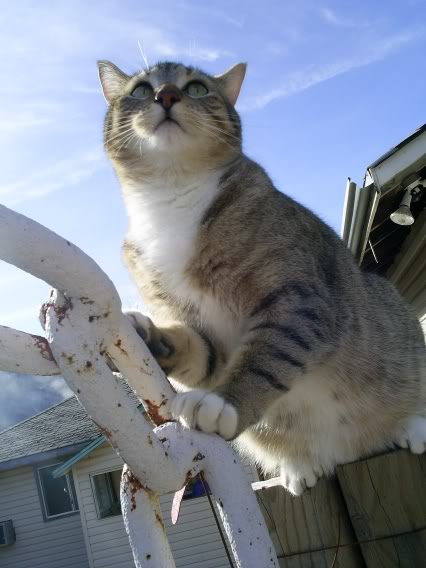Most parrots are not seriously taught to talk - they merely pick up odd words and scraps of conversation they happen to overhear. A few phrases such as "Good morning, Polly" or "Hullo, Polly!" may be clearly enunciated for the simple reason that they were, when said, actually addressed to the bird itself. I am convinced, therefore, that if you have a suitable subject in a young parrot and want it one day to be a brilliant talker you must train it to become one, and this can only be done by patience and kindness.
The best time to teach parrots to talk is in the late evening when they are apt to be in a quiet and contemplative mood, whereas in the morning they are usually at their noisiest and most active. It is essential also to choose a time when the room's sole occupants can be yourself and your parrot - if other people are talking in the room it is hopeless.
It is a good plan to get the bird used to having the back and two sides of its cage temporarily covered over at lesson time so that it will have its attention distracted as little as possible and be able to concentrate on what you are trying to teach it.
You should then say over very clearly whatever sentence you wish it to learn, and, always. allowing a suitable interval between each, repeat this perhaps a dozen times. It is of the utmost importance that you should then leave the bird alone to think over what it has heard you say.
If you insist upon lingering in the room to lavish endearments on your pet, such as "Polly has been a good boy", you will merely find that the sentence you have been trying to teach the bird will - if remembered at all - have "Polly has been a good boy" interposed quite irrelevantly in the middle of it - and you will have only yourself to blame!
What I have said applies equally of course to any bird that can be taught to talk, but I thought it worth including this note on teaching a bird to talk instead of letting its sole repertoire consist, as is so often the case, of a hotchpotch of people laughing, dogs barking, disjointed scraps of talk and, that delight of most talking parrots, the one-sided conversation of somebody telephoning in an adjoining room.
Most parrots will pick up anything they hear - and an Amazon of mine imitates to such perfection the rather lost, eerie sound of a train whistle on a frosty night that you almost expect to hear the train itself! Some imitate the barking of dogs of various sizes; others the screaming of babies; and almost the sole sentence of some I have encountered has been "Polly want a cup of tea?" which I suppose does at any rate show that they have come from a typically English household!
What I have said about teaching a parrot to talk applies every bit as much to teaching it to whistle a tune. Whatever the tune may be it must be whistled right through from beginning to end, and, allowing suitable intervals between, this must be done several times over and the bird must then be left in peace and quiet for it to sink in.
Most parrots whistle odd scraps and snatches of tunes, but only properly and patiently trained ones will whistle a tune right through from beginning to end without a mistake; and I do think the training - which involves no hardship for the bird - is very well worth while in the way of results. Let no one suppose that, for the bird's owner, it has been as easy as falling off a log. It has not, for it required both skill and patience, but most of all - patience.
Using these simple skills most parrots can be taught to talk. Have fun!

 The Language Makes For An Great Vacation Hire?
1 more unique vacation home business that is to be had durin
The Language Makes For An Great Vacation Hire?
1 more unique vacation home business that is to be had durin
 Notes For Your Vacation Rental Pet Policy
Sometimes the blues could very well set in and after a vac
Notes For Your Vacation Rental Pet Policy
Sometimes the blues could very well set in and after a vac
 Why Wetlands Are An Critical Aspect Of Eco
Pets are usual areas of peoples lives it isnt really at all
Why Wetlands Are An Critical Aspect Of Eco
Pets are usual areas of peoples lives it isnt really at all
 Weekend Retreat Tips - 15 Common Vacation Disability Benefits You Can Remain!
Points of interest. russian trips are good methods for those
Weekend Retreat Tips - 15 Common Vacation Disability Benefits You Can Remain!
Points of interest. russian trips are good methods for those